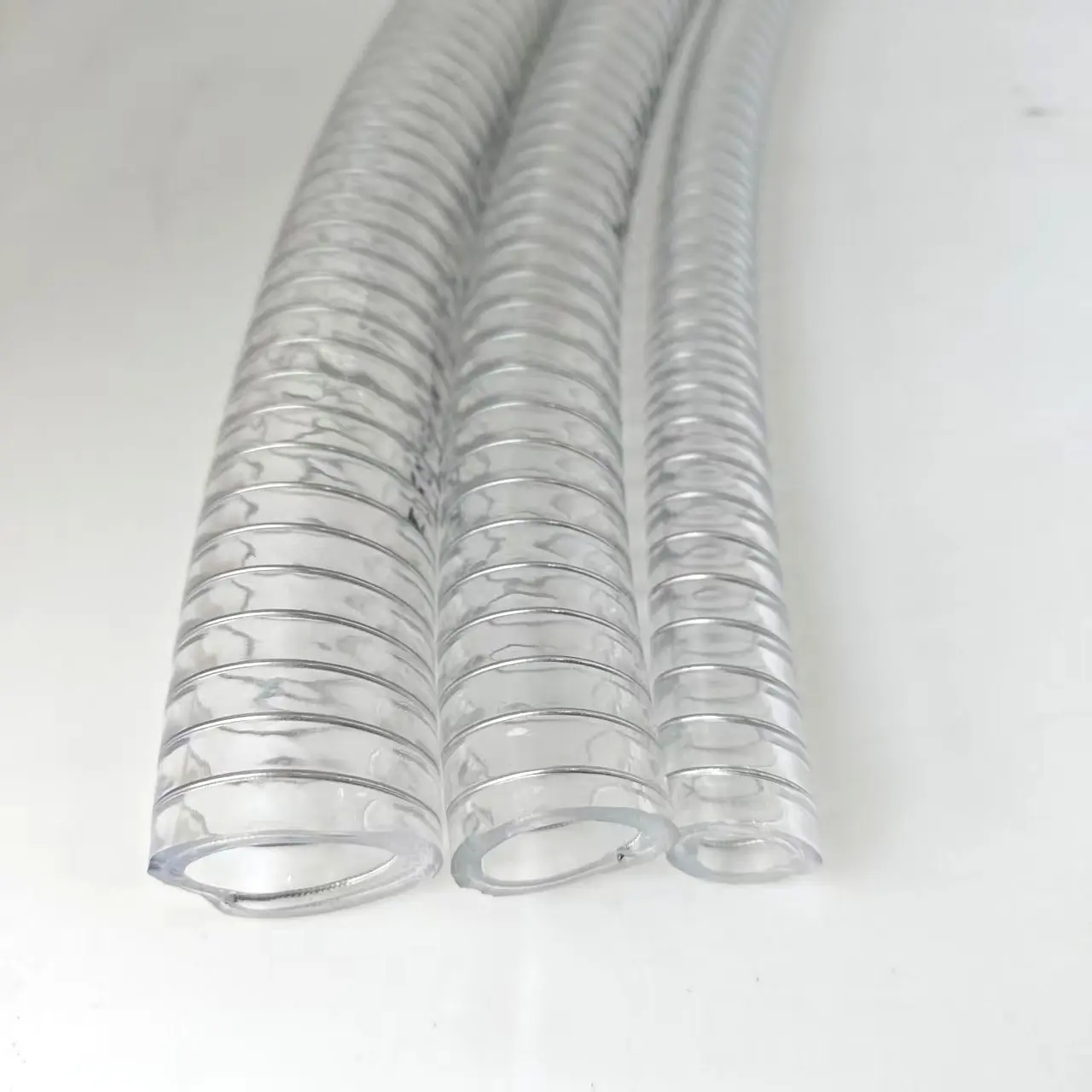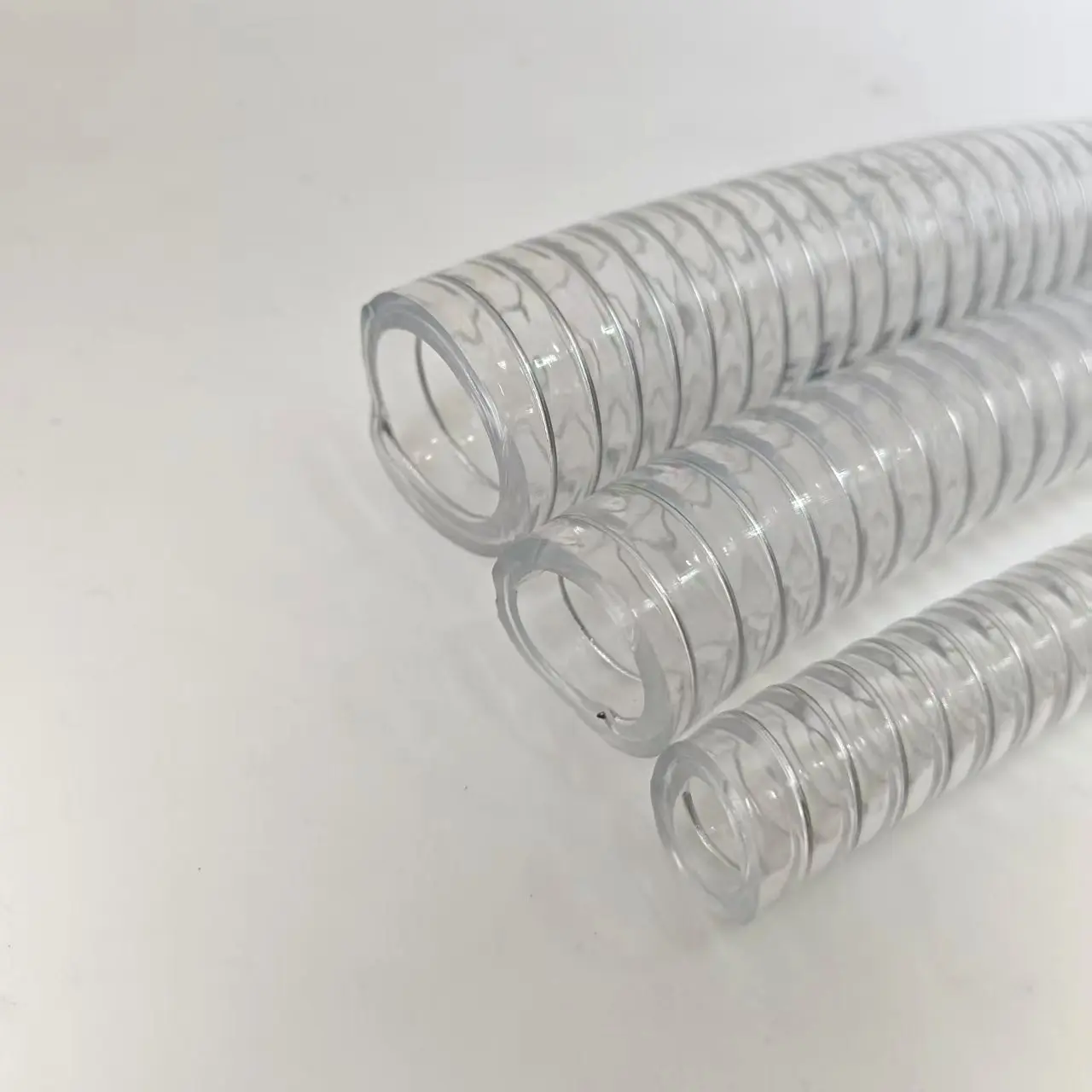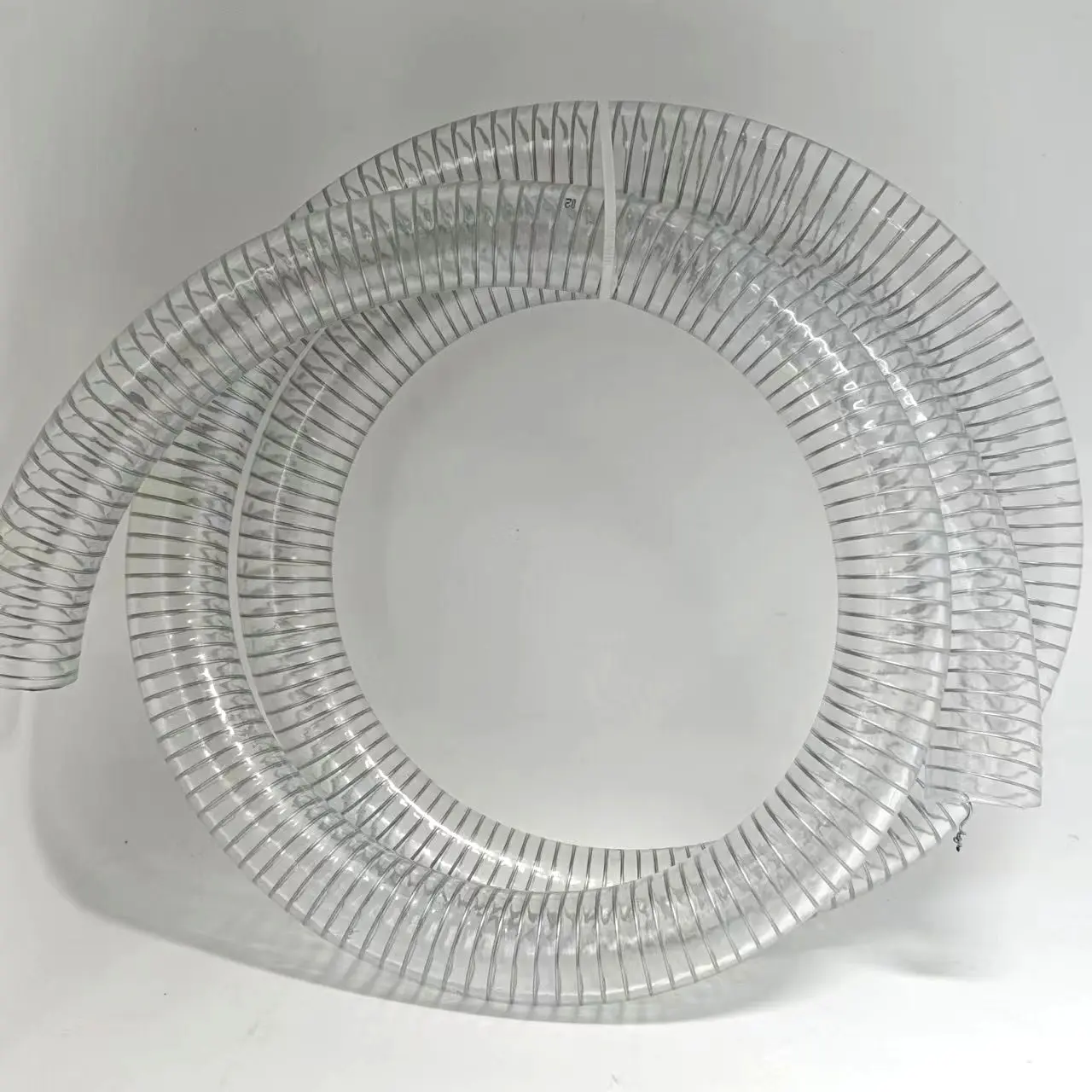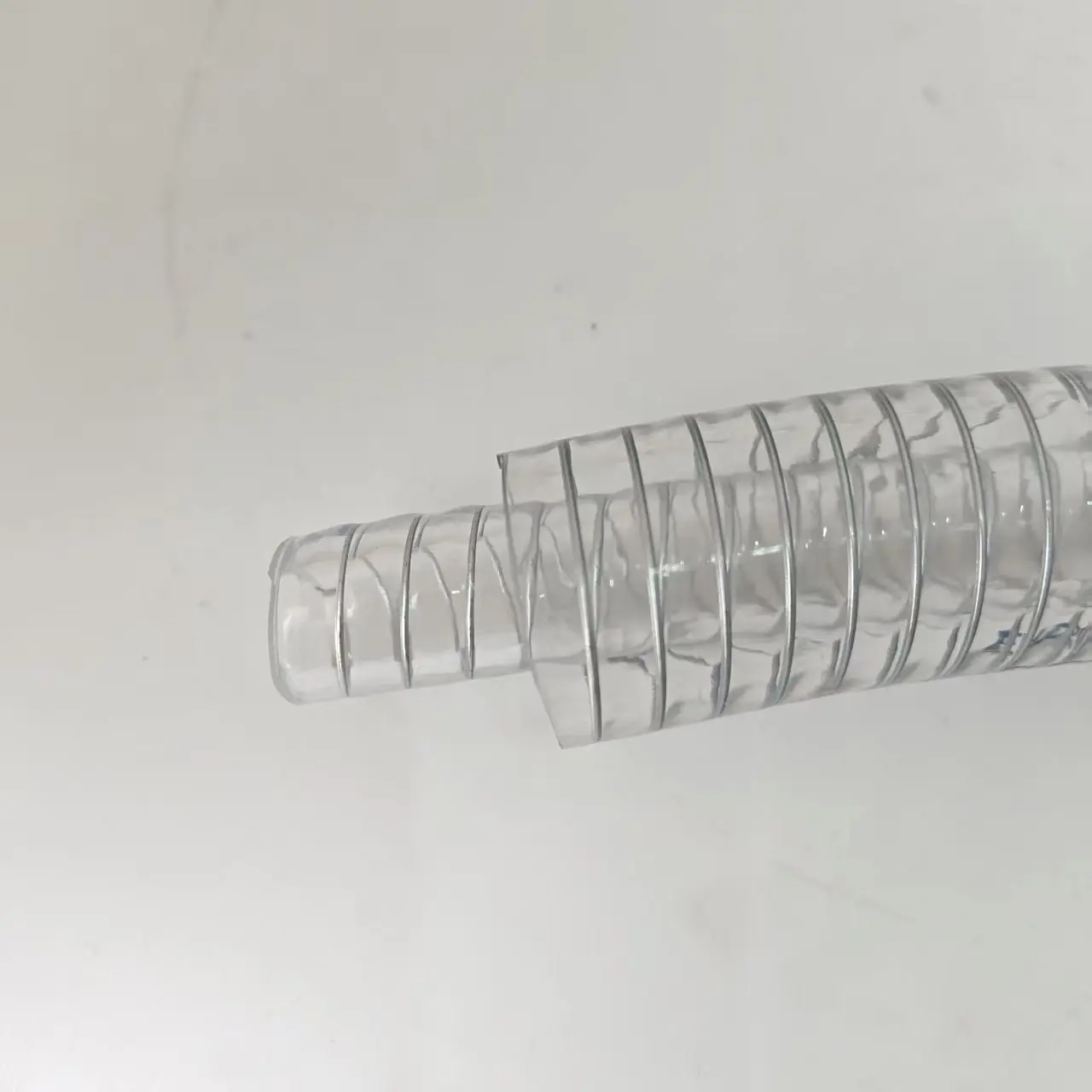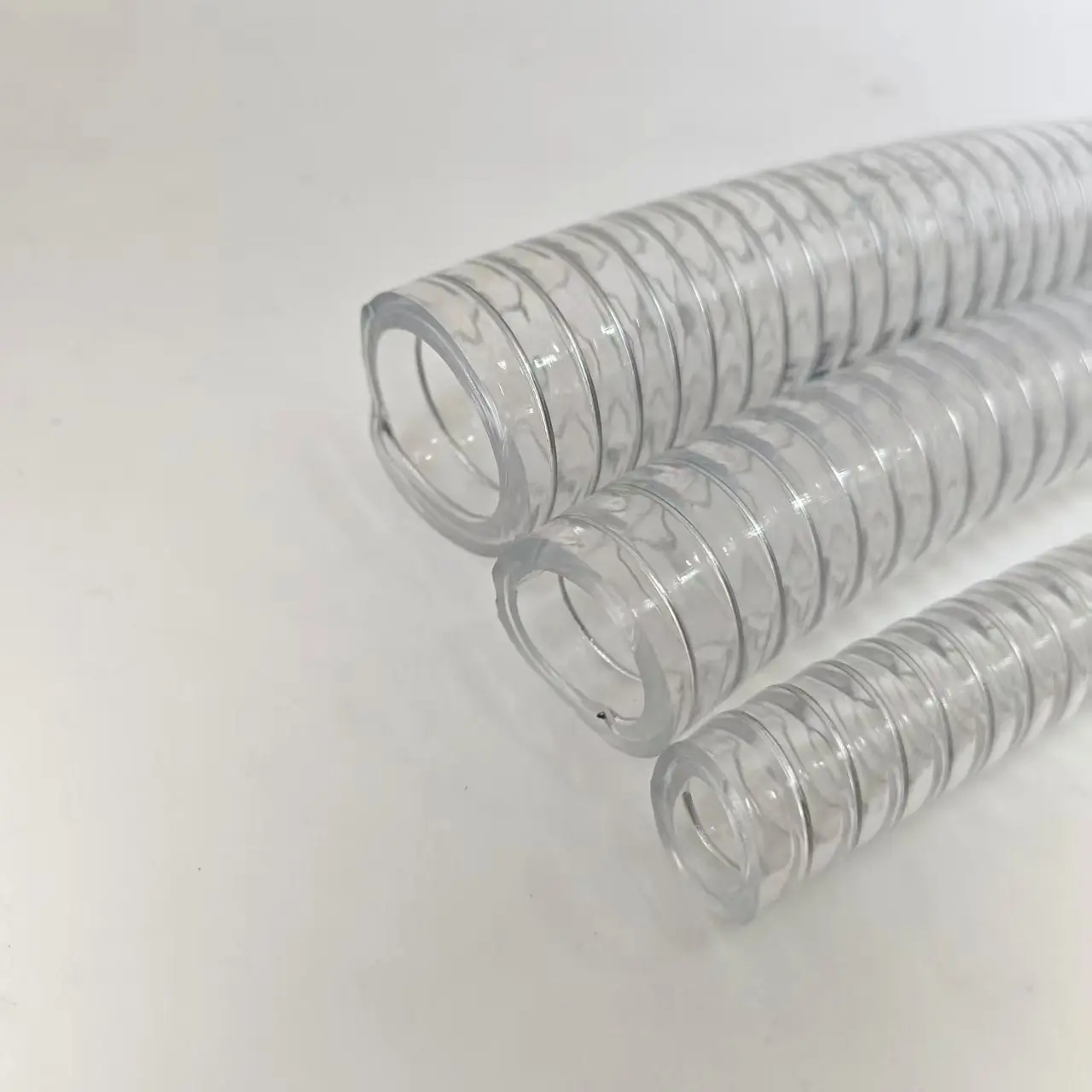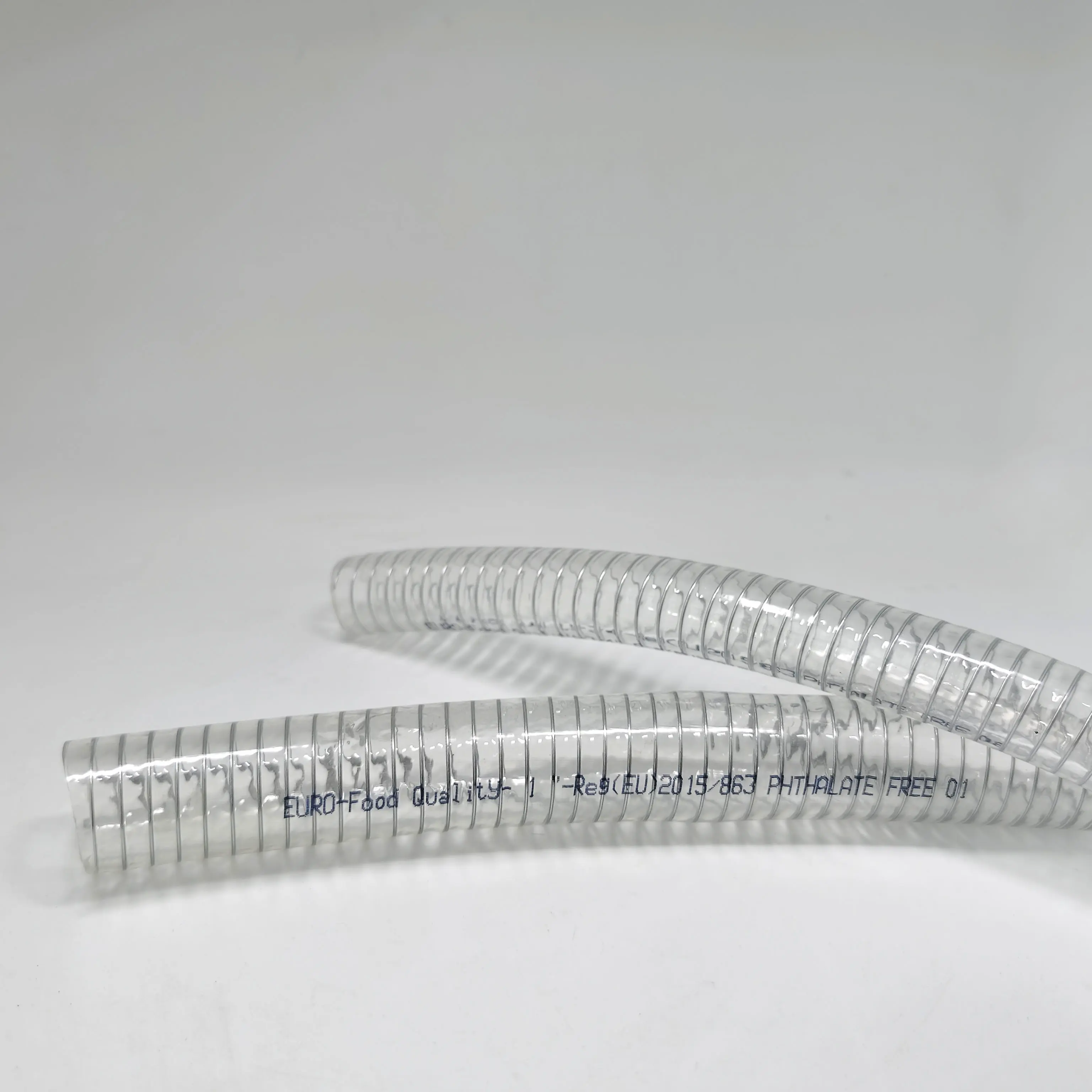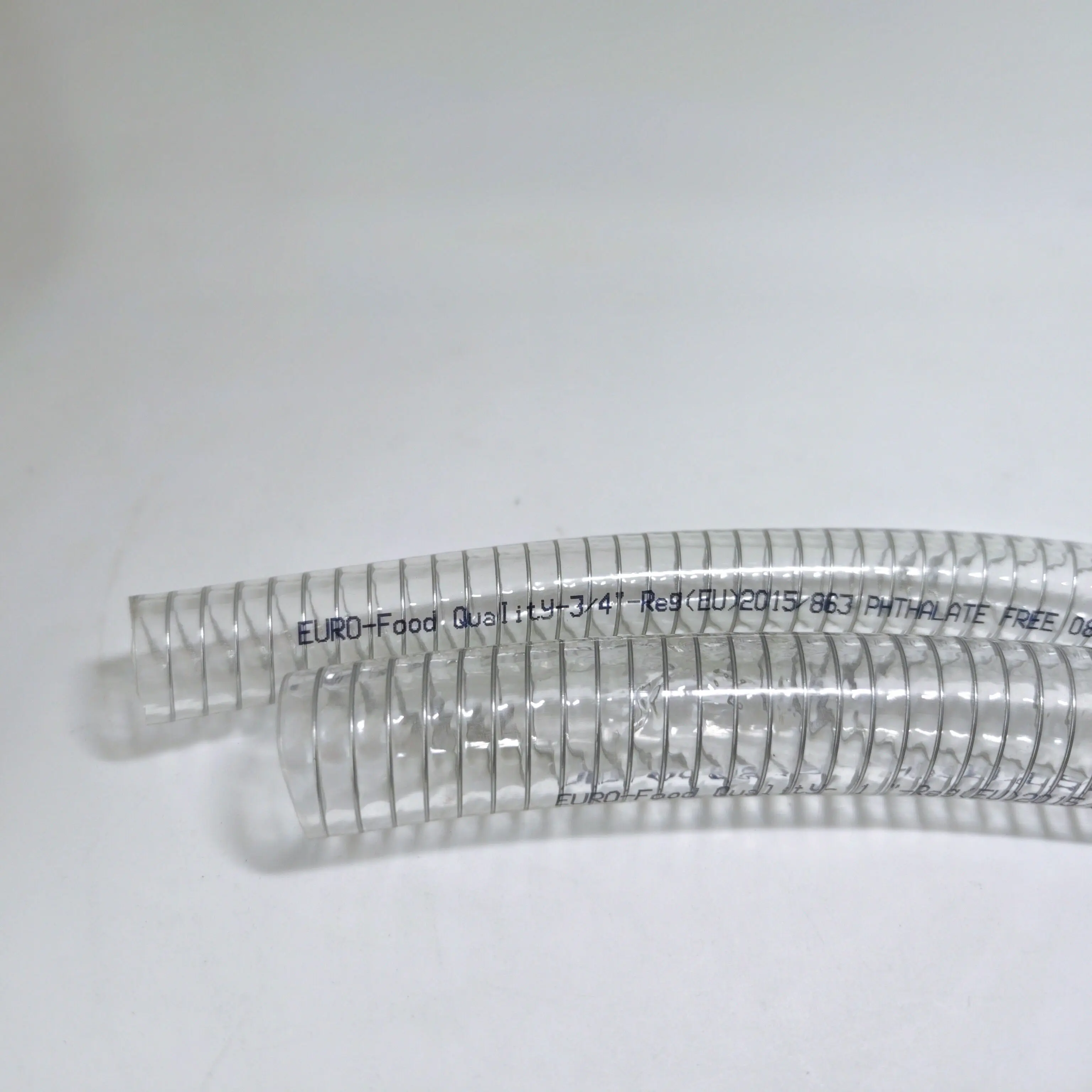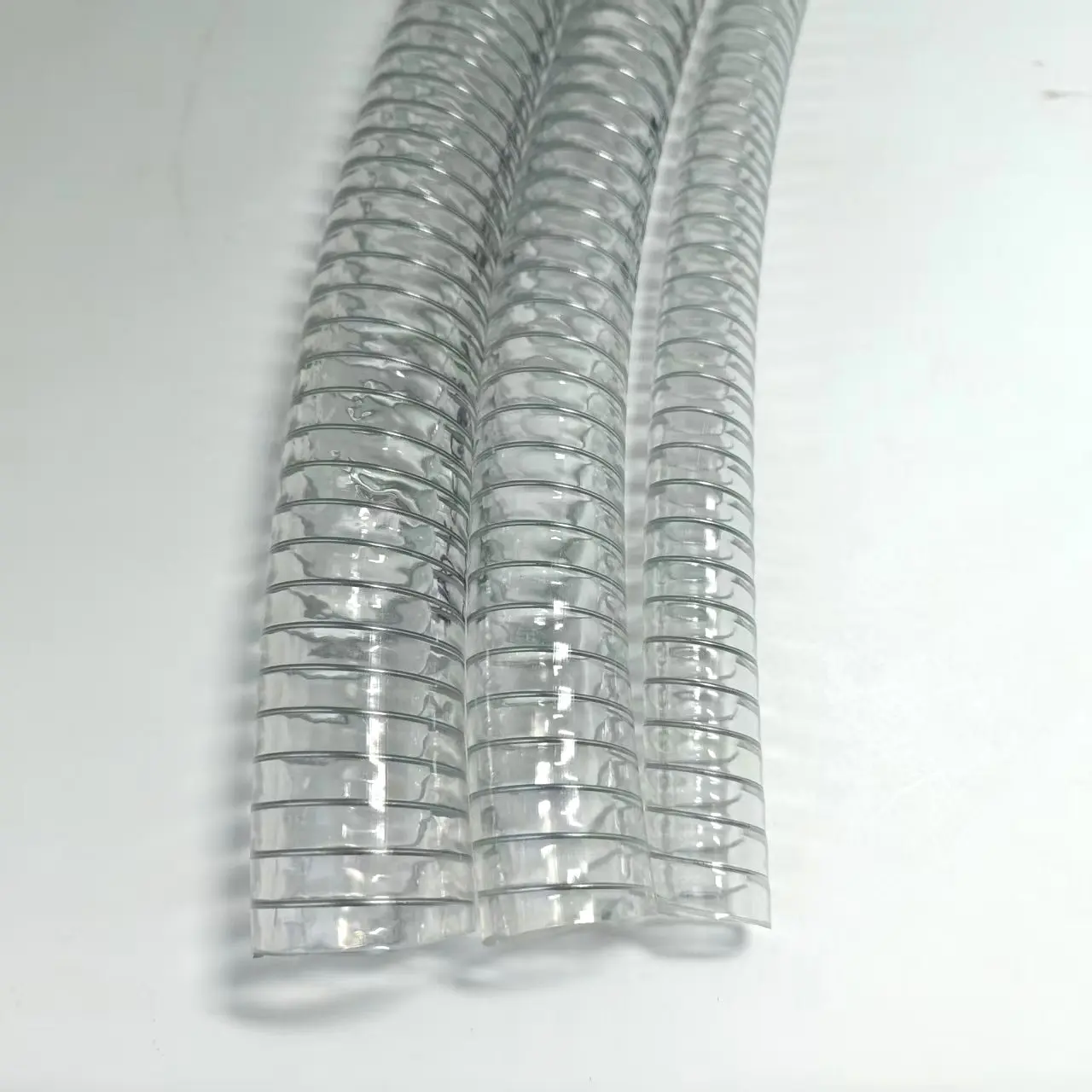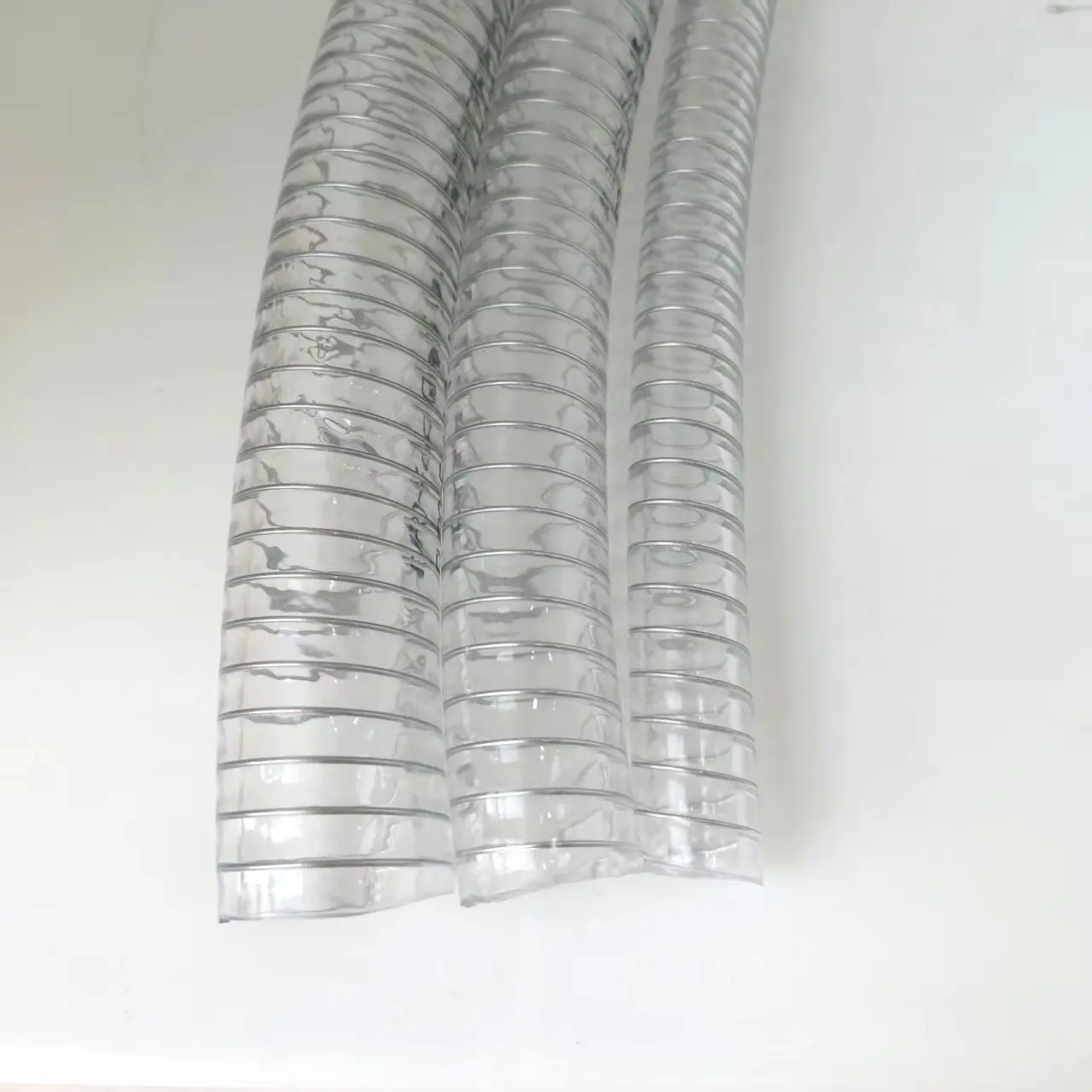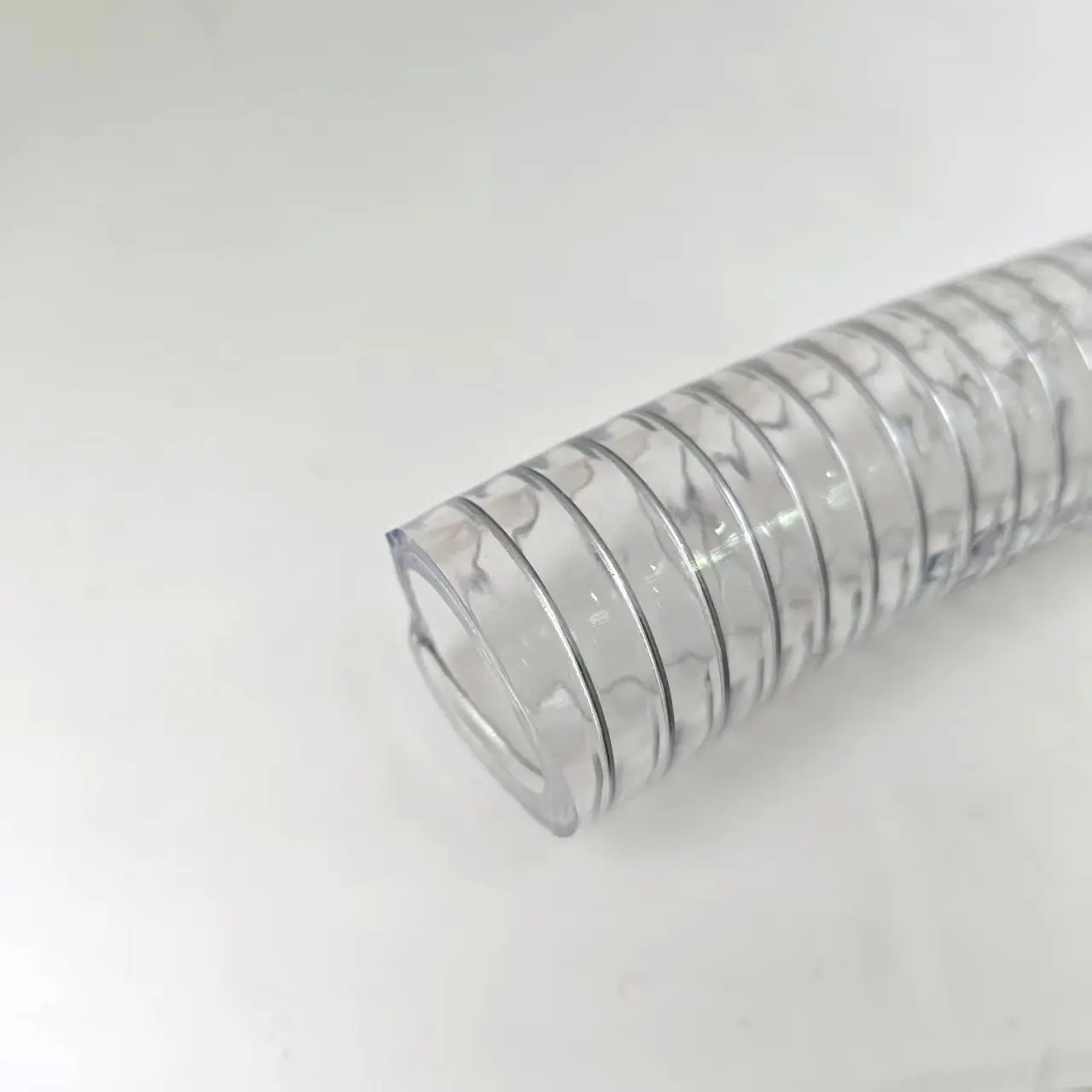Product Overview
PVC Steel Wire Hose is a flexible hose made of polyvinyl chloride (PVC) reinforced with a spiral steel wire, combining flexibility and strength. This type of hose is widely used across various industries in New Zealand due to its lightweight, durability, and ease of handling. Compared to traditional rubber hoses, PVC Steel Wire Hose is easier to store and transport while offering sufficient pressure resistance, making it suitable for conveying a variety of non-corrosive liquids and gases.
In New Zealand, the unique geographical and climatic conditions make PVC Steel Wire Hose particularly popular in agriculture, construction, and industrial applications. For example, New Zealand’s thriving livestock industry frequently uses this hose for irrigation and water supply for animals. Additionally, construction sites often employ this hose for temporary water supply and drainage systems due to its easy installation and resistance to deformation.
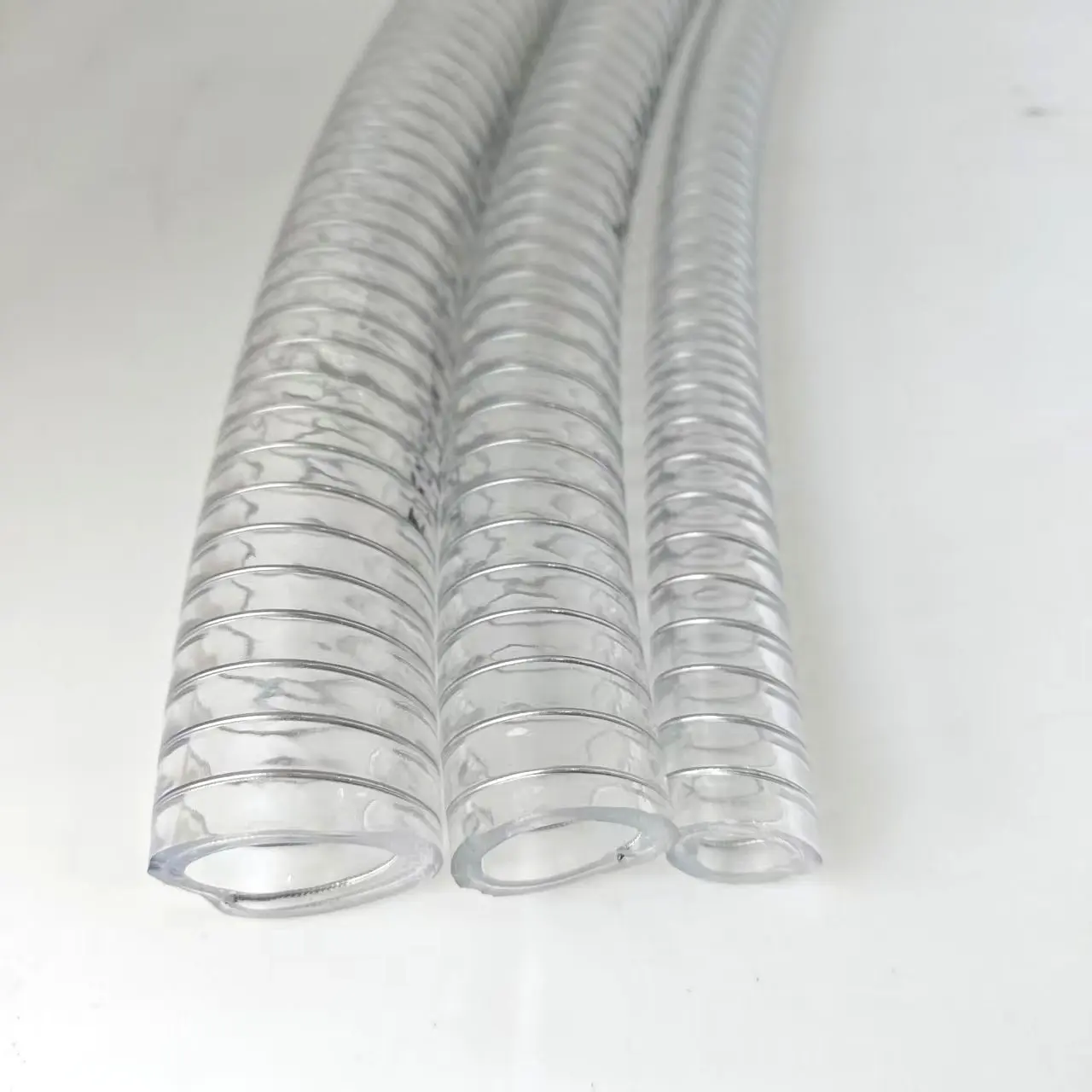
Key Applications
(1) Agricultural Irrigation
New Zealand’s agriculture, dominated by livestock and horticulture, has significant irrigation needs. PVC Steel Wire Hose is widely used in mobile irrigation systems due to its lightweight and tangle-resistant properties, allowing farmers to easily move the hose between different areas for efficient watering.
(2) Construction Sites
The construction industry in New Zealand frequently requires temporary water supply and drainage solutions. PVC Steel Wire Hose, known for its abrasion resistance and durability, is commonly used for tasks such as concrete curing and equipment cooling water supply.
(3) Industrial Uses
In industries like food processing and wastewater management, PVC Steel Wire Hose is used to transport non-corrosive liquids. For instance, dairy factories may use this hose for clean water transfer.
(4) Household and Gardening
PVC Steel Wire Hose is also popular in home gardens across New Zealand for watering systems, as it is easy to store and resistant to aging.
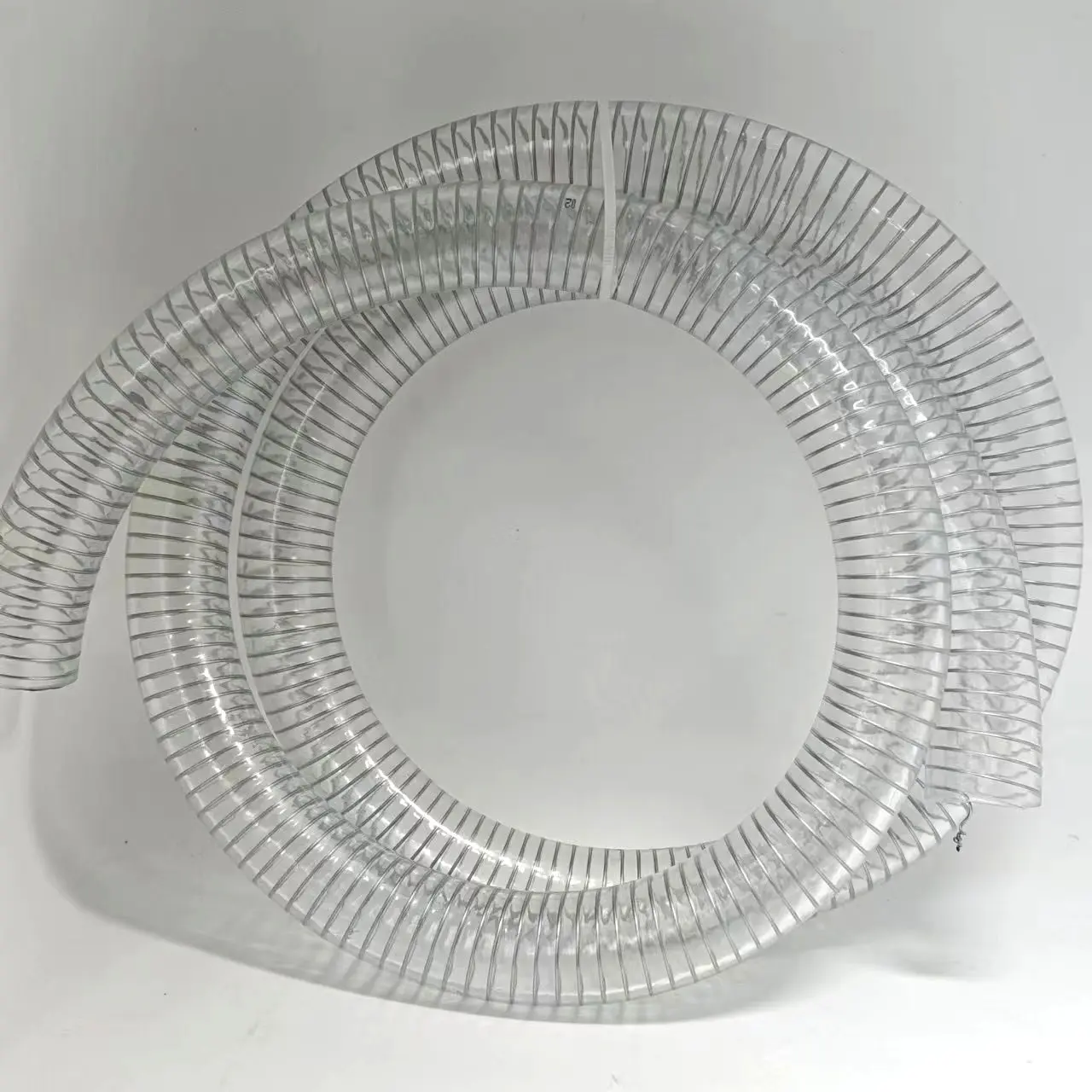
Environmental Adaptability
New Zealand’s climate is variable, with wet winters and strong sunlight in summer. PVC Steel Wire Hose performs well within a moderate temperature range (typically -10°C to 60°C), making it suitable for most regions in the country. However, in extremely cold areas, such as high-altitude parts of the South Island, low temperatures may stiffen the hose, affecting its performance.
Additionally, New Zealand’s strong UV radiation can cause gradual degradation if the hose is left exposed to sunlight for extended periods. To mitigate this, users are advised to opt for UV-resistant variants or store the hose properly when not in use.
Market Overview
In New Zealand, PVC Steel Wire Hose is primarily imported, with limited local manufacturing. Major import sources include China, Australia, and some European countries. Due to the relatively small market, suppliers typically distribute the product through hardware stores, agricultural equipment dealers, and online platforms.
In terms of pricing, PVC Steel Wire Hose is more cost-competitive than rubber hoses, making it a preferred choice for budget-conscious projects. Prices are influenced by raw material costs, shipping expenses, and market demand.
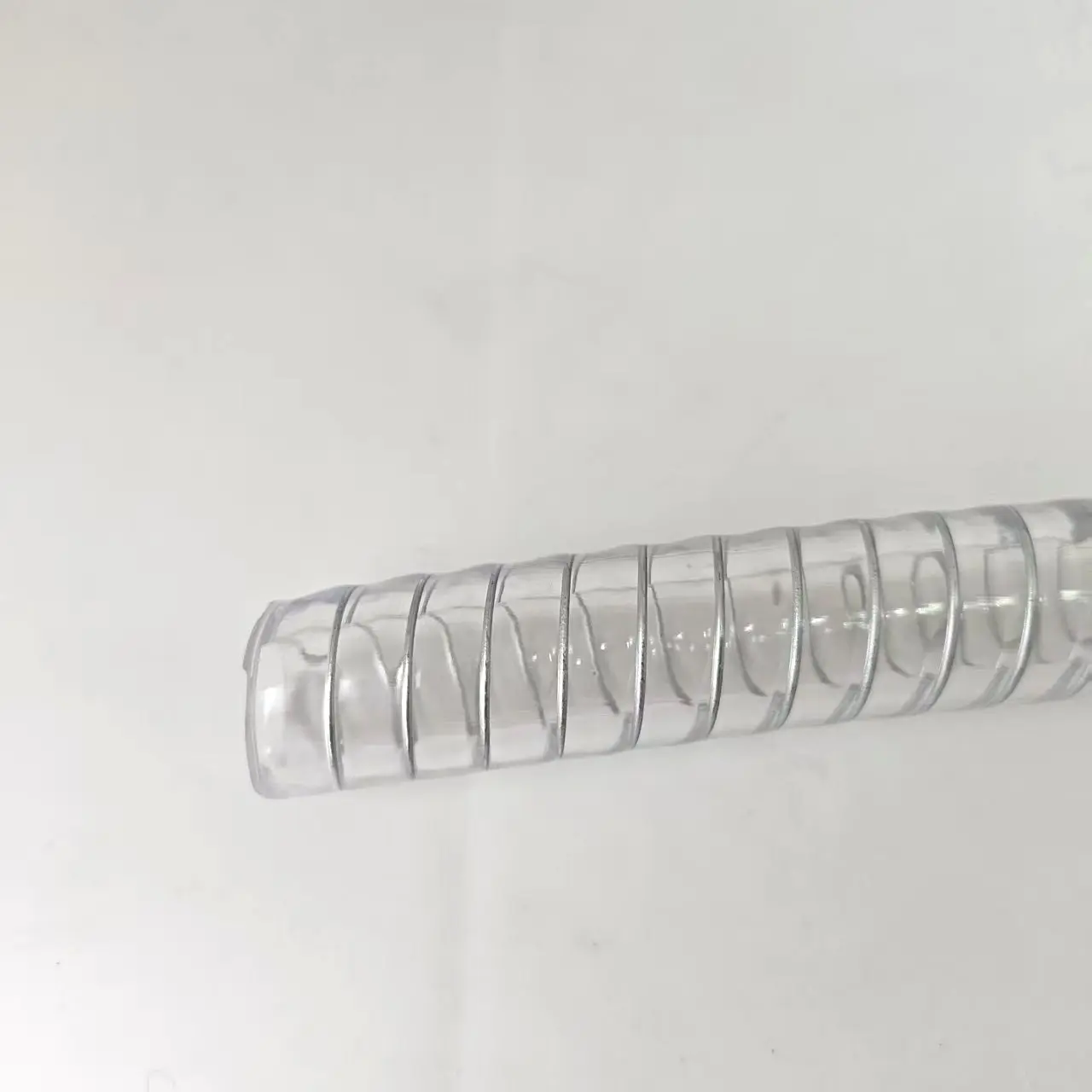
Purchasing Considerations
| Factor | Description |
|---|---|
| Diameter | Choose the appropriate size based on flow requirements (common sizes include 1/2", 3/4", and 1"). |
| Steel Wire Reinforcement | Higher wire density improves pressure resistance; opt for tightly wound spirals for heavy-duty use. |
| Temperature Range | Ensure the hose is suitable for local climate conditions to avoid issues in extreme temperatures. |
| UV Resistance | For prolonged outdoor use, select a UV-resistant model to extend service life. |
| Fitting Compatibility | Check if the hose fits existing pump or irrigation system connectors to avoid installation difficulties. |
Maintenance and Storage
Proper care and storage can significantly extend the lifespan of PVC Steel Wire Hose. After use, drain any remaining liquid to prevent microbial growth. In winter, if the hose is used for water transfer, precautions should be taken to prevent freezing, which could cause cracks.
When storing, avoid direct sunlight and keep the hose in a cool, dry place. If not in use for long periods, coil the hose loosely to prevent permanent creases.
Comparison with Other Hoses
Compared to rubber hoses, PVC Steel Wire Hose is lighter and more affordable but less adaptable to extreme temperatures. When compared to polyethylene (PE) hoses, PVC hoses offer better flexibility, making them more suitable for applications requiring frequent movement.
In New Zealand, users typically choose hoses based on specific needs. For example, fixed irrigation systems may favor PE hoses, while scenarios requiring frequent relocation often make PVC Steel Wire Hose the better option.
In summary, PVC Steel Wire Hose has broad applications in New Zealand’s agriculture, construction, and industrial sectors. Its lightweight, durable, and cost-effective nature makes it a preferred choice for many users.
